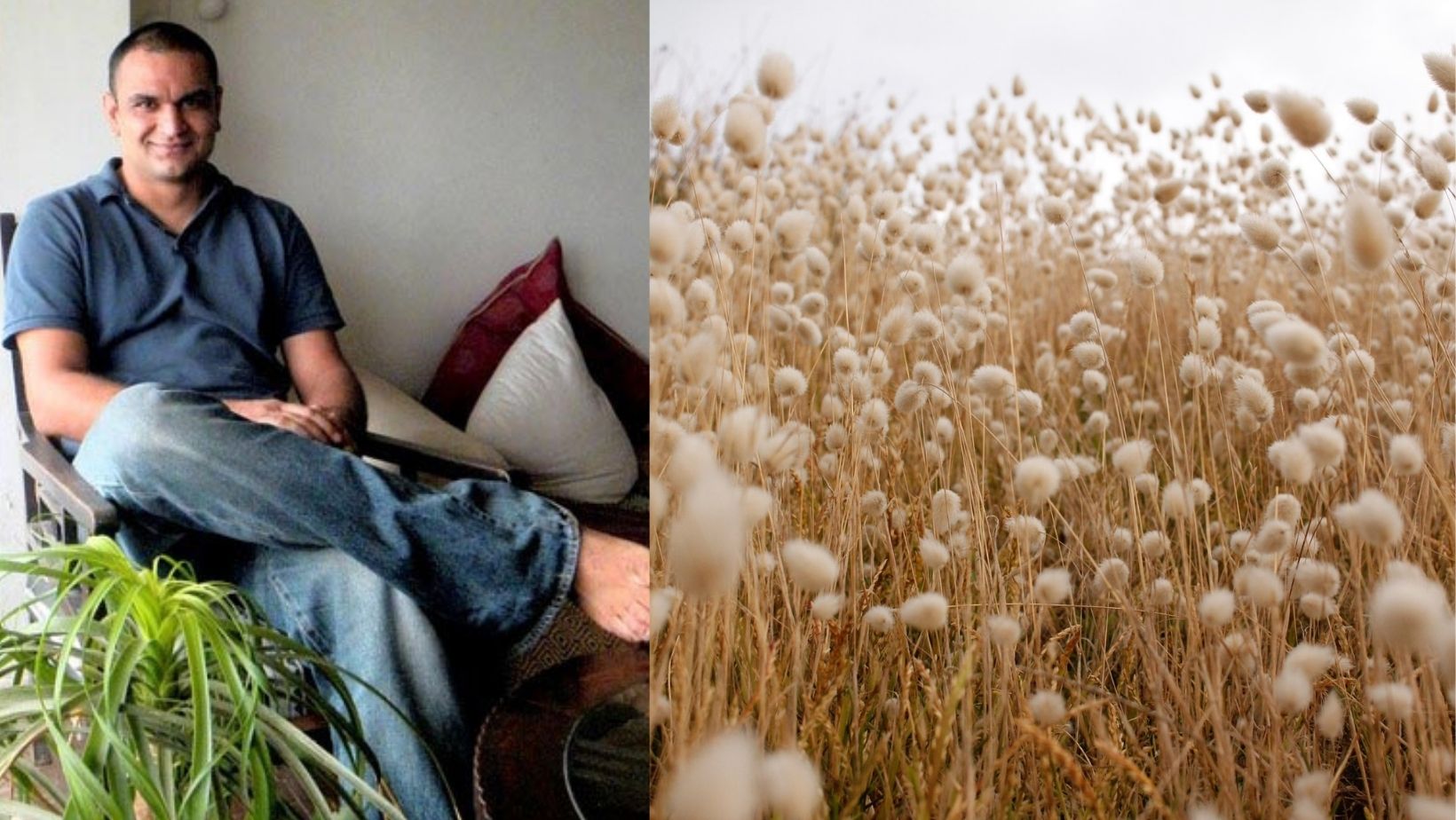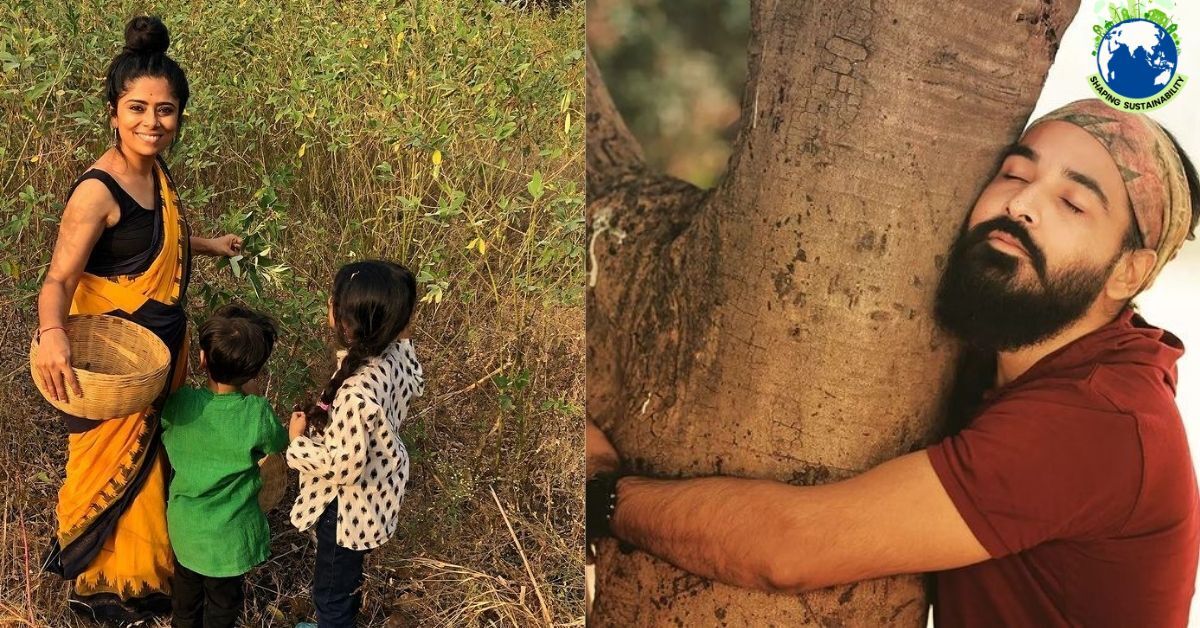This article is part of a deep dive to celebrate Environment Day by highlighting individual and community action that leads to large scale impact on the planet. ItStartsWithMe is the second chapter of ‘Shaping Sustainability’, an exclusive series by The Better India, to give our readers an in-depth understanding of how Indians are making sustainability a priority in all walks of life. Find more stories from the series here
Some people believe that only the government and policy-makers can stop the destruction of human civilisation from climate change. I am not one of those people.
While we all suffer from a lack of time and brain space to take on such a complex challenge, our simple actions can still have a huge impact. But don’t take my word for it. Listen to these sustainability experts who have advice on we can keep the Earth livable for us.

“Next time you go shopping, ask yourself: Is this helping or hurting? A super-easy way to help: choose made in India. With almost 6 million cotton farmers in India, there is absolutely no reason to buy American cotton or Egyptian cotton or from anywhere else. For sustainability, shop from brands that use 100% Indian-grown cotton, and when you can (and you always can!), choose organic cotton.”
– Apurva Kothari, Founder, No Nasties
“This Environment Day, head to your local park or nearest green area and adopt a patch as your own. Stand there and choose a section you want to build a relationship with. Engage with it every day in small ways. Remove any trash you find there. If plants are wilting in the summer heat, bring some water for them from home. Sit there, and observe the birds that visit, the insects that live under leaves and in nooks and crannies. Take photos, and share them with friends and family on social media and WhatsApp.
Each time you take a picture and make someone pause and appreciate nature and sustainability, you’re helping protect our natural world and making this planet a more sustainable place. As you care for your patch in small ways and deepen your relationship with it, you’ll find – like all relationships – that you’ll benefit from it too. Earth doesn’t want grand gestures. It just wants love and respect, each day, in small ways.”
– Neha Dara, Writer & Head, RoundGlass Sustain
“One of the things I do without fail every time I step outside my home is carry a dabba or tiffin box with me. I may not even have planned to go out to eat but I still carry it because impromptu plans are very common. And in case there is any kind of leftovers at the eatery, I’d want to be ready with my dabba to carry it home.
This helps prevent food waste and also tackles plastic waste in the form of restaurant takeaway packaging. I also always put the leftovers into the dabba myself. As waiters often bring back your dabba along with a plastic/cloth bag and also put cutlery along with it. So by just putting the food into the dabba by yourself, you make sure that there’s no unnecessary products to take home. Also, it might seem embarrassing if you’re surrounded by friends or family who tease you about it. But stand your ground and proudly do it because sustainability makes a difference.”
– Nayana Premnath, Cosmo Sustainability Influencer 2022
“Take the ‘Plastic Upvaas’ by shunning just one single-use plastic item from your daily life. Reduce your waste! Carry your own reusable bag, water bottle and reusable straw everywhere you go. In the times of corona, carrying your own cutlery is not only good for the environment, it’s also safer from a hygiene perspective.”
– Ripu Daman Bevli, Plogging Ambassador of India
“Using clothes to the fullest before discarding them can bring down one’s carbon footprint considerably. Therefore, I style the same clothes differently, re-wear them and post pictures, to break the taboo of not repeating clothes on social media.
Thus encouraging people to get creative and develop a deeper relationship with clothes, rather than treating them as use and throw items.”
– Isha, Slow fashion advocate
Further reading: Want a Sustainable Wardrobe? 10 Eco-Friendly Clothing Brands That Stand Out in The Noise
“As a vegetarian chef-entrepreneur who is also an urban gardener, it’s my responsibility to keep all the plants at home happy! For this, we compost all our green waste and feed it back to the earth. It’s a small step to our greener future.”
– Kishi Arora, Chef and entrepreneur
Further reading: Learn the Art of Composting in Your Home & Watch Your Kitchen Waste Turn to Wealth
“As a passionate environmentalist, I’ve always seen my home as an extension of the vast outdoors. I believe all of us need to become hands-on eco-warriors if we are to leave the earth a better place for generations to come. One activity I enjoy doing with kids is making ‘mud seed balls’.
These are small-sized balls made of earth and seeds which are used to replant in areas where the natural flora has been destroyed. It’s the best entry point to get young kids introduced to being environmentally conscious in a fun way!”
– Radhika Anand, Founder of Plantology
“What is that one thing that you do every day? Brushing your teeth right. Do you know that almost 150 million plastic toothbrushes end up in the garbage every month just in India? For me, the simplest action from which we all can start leading a zero-waste lifestyle or a sustainable lifestyle is by making changes in our daily small activities like switching to bamboo or wooden toothbrushes.
This may not seem like the best option for replacing the cheap plastic toothbrushes but for once can’t we all invest in something that is good for our environment? You can always be the change you want to see in the world, you just have to believe in yourself.”
– Ridhima Pandey, 14-year old climate activist
“One of the things we do without fail at our home is collect our RO filter reject water and use it for cleaning purposes i.e. mopping floors and bathrooms. Also, we use the water to fill the washing machine, when it needs to be used. This ensures any rejected water from RO is used for the best purposes.
We avoid shower baths and use buckets. We also make sure to give our kids water in a glass while brushing their teeth so they don’t waste water, even accidentally. While going out, we carry shopping bags and water with us and make sure there is always one shopping bag in the car for any impromptu purchases.”
– Kamana Gautam, Sustainability parenting practitioner
“I turned vegan because I couldn’t bear to support the suffering animals are subjected to in the production of meat, seafood, milk products (like milk, cheese, butter, ghee etc), eggs, honey, leather, wool, silk etc. Our innate speciesism allows us to believe that some animals are meant to be loved (dogs and cats) while others are meant for a lifetime of slavery, ultimately destined for the slaughterhouse – but that aside, researchers at Oxford University have found that turning vegan could be the most impactful personal choice we could make for the planet.
Large swathes of the Amazon rainforest and other primary forests have been cut to grow soy and corn, nearly 80% of which are used as animal feed. And for every 1 kg of fish caught for food, nearly 5 kg of marine life is killed accidentally. Turning vegan sounds like a big sustainability commitment – and it is – but over the past 7 years, being vegan on the road has led to some of the best meals and most beautiful friendships of my life!”
– Shivya Nath, Sustainable traveller & author
If you found our stories insightful, informative, or even just enjoyable, we invite you to consider making a voluntary payment to support the work we do at The Better India. Your contribution helps us continue producing quality content that educates, inspires, and drives positive change.
Choose one of the payment options below for your contribution-
By paying for the stories you value, you directly contribute to sustaining our efforts focused on making a difference in the world. Together, let's ensure that impactful stories continue to be told and shared, enriching lives and communities alike.
Thank you for your support. Here are some frequently asked questions you might find helpful to know why you are contributing?

